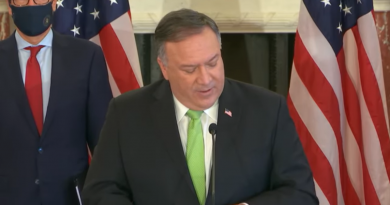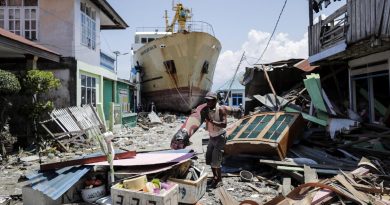Tragedy Urges Change in Montenegro
Abigale Giordano
Staff Writer
The new year began with calls for action against gun violence in Montenegro, a small Balkan country on the Adriatic Sea, after a gunman opened fire in a bar, killing 12 on impact and another who succumbed to injuries in the days following the shooting. Cable News Network reports that the gunman, later identified as 45-year-old Aleksander Aco Martinovic, died of self-inflicted injuries after being cornered by police. ABC News reports that Martinovic carried out the massacre with an illegal 9 mm gun. Police said they found 37 casings at the shooting location and over 80 additional pieces of ammunition in the gunman’s possession. Martinovic had been convicted of violent behavior and illegal weapons possession in the past and had received psychiatric treatment.
Two of the victims were children, and another was the gunman’s sister. Montenegro’s national police director, Lazar Scepanovic, highlights that many of the victims had close links to the gunman, claiming “All the victims were his godfathers, friends…the motive is still unknown,” according to CNN. The attack is one of the small nation’s worst mass killings, and the second shooting in less than three years in the same small town, Cetinje. In August 2022, a man shot and killed 10 people before being gunned down, according to The Washington Post. The Washington Post emphasizes the nation’s shock at the tragedy, sharing President Jakov Milatovic’s post on X, formerly Twitter, that evening: “Instead of holiday joy…we have been gripped by sadness over the loss of innocent lives.” The state entered a three-day mourning period following the events. Hundreds lit candles in silence on January 2 in memory of the victims.
The Associated PressAssociated PressThe Associated Press reports the calls for change due to concerns about the level of violence in Montenegrin Society, which is politically divided. The Montenegrin government has pledged to adopt measures to curb the widespread illegal possession of weapons. Thousands of Montenegrins are demanding the resignations of top security officials over the tragic events, accusing the authorities of failing to boost security amidst the two shootings in Cetinje.
The small nation has a strong gun culture. Small Arms Survey, a Geneva-based project, found that Montenegro has the third highest civilian firearms per 100 citizens at 31.9; tied with Serbia and only less than Yemen and the United States. The survey estimated there are about 245,000 firearms in use in the nation of just over 620,000 people. 2022 police data indicates only 100,000 of those firearms are legal. There are an estimated 40,000 to 80,000 illegal firearms in Montenegro. The European News Network reports that Montenegrin broadcaster RTCG reported that Montenegro is sixth in the world when it comes to the number of illegal weapons per capita.
Euronews reports the questions raised by civilians about the readiness of state institutions to tackle the problem of gun ownership, as well as the concerns raised about the level of violence in the politically divided Montenegrin society. An emergency session of Montenegro’s National Security Council was called to establish new gun laws and urgent actions to confiscate an abundance of illegal weapons throughout the state. Radio Free Europe reports that the government has announced many new gun control measures. Montenegrin Prime Minister Milojko Spajic announced the proposed new Law on Weapons on January 3, following the seven-hour Security Council session, which was chaired by President Milatovic. Radio Free Europe details that “The proposed law will mandate the re-verification of existing weapons licenses and impose severe penalties for those who fail to surrender illegal weapons within a two-month period.” Hunting clubs also must be “verified by the government and authorities will establish an anonymous tip line where citizens can report illegal weapons possession for a reward.”
Image courtesy of Getty Images



